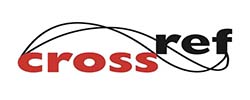Author: Vincent Ishola Esan, Oluwafemi Oyeniyi Omilani, Sifau Adenike Adejumo, Teniade Omosebi Adeyemo, Oluwafunke Adenike Akinbode
![]() DOI: 10.22161/ijeab/3.3.3
DOI: 10.22161/ijeab/3.3.3
Keyword: drought, field experiment, sweet potato, tolerance
Abstract: The effect of drought on most agricultural crops results inmany problems for the producers in Nigeria and even other parts of the world. These problems include reduced vegetative parameters and yield loss which consequently lead to reduced income for the growers of the crops. The most direct way of avoiding drought is to discover or create drought tolerant varieties of sweet potato. Sweet potato is a crop which is part of the Nigerian diet due to its perceived nutritive values. A field experiment was carried out in Bowen University, Iwo to evaluate different cultivars of sweet potato for drought tolerance. The experimental design was laid in Randomized Complete Block Design with three replicates and three treatments including the mild water stress (32 days of drought), severe water stress (from the day of drought till harvest) and nowater stress (control). Results showed that under the control treatment, the highest yield was from the Local variety 1 with 127.63 g while the lowest yield under control was from Local variety 2 with 39.20 g. Under the mild water stress, the highest yield was from Introduced variety 1 with 272.46 g while the lowest yield was from Local variety 2 with 59.66 g. Under the severe water stress, the highest yield was from Local variety 1 with 41.15 g while the lowest yield was from Introduced variety 1 with 0 g. The highest yield among the three treatment methods was under the mild water stress treatment from Introduced variety 1 with 272.46 g.Therefore, variety 3, the local variety, is recommended under severe drought based on the above reason but under moderate drought,the Introduced variety i.e. variety 1 (orange fleshed sweet potato) is preferred because it had the highest yield and is also of high nutrient content compared to the other varieties.
| Total View: 2709 | Downloads: 696 | Page No: 0732-0741 |
Cite this Article:
MLA
Vincent Ishola Esan, Oluwafemi Oyeniyi Omilani, Sifau Adenike Adejumo, Teniade Omosebi Adeyemo, Oluwafunke Adenike Akinbode, P.(2018).Screening of sweet potato ((Ipomea batatas [L.] Lam.)cultivars for drought tolerance. International Journal of Environment Agriculture and Biotechnology(ISSN: 2456-1878).3(3), 0732-0741.10.22161/ijeab/3.3.3
Vincent Ishola Esan, Oluwafemi Oyeniyi Omilani, Sifau Adenike Adejumo, Teniade Omosebi Adeyemo, Oluwafunke Adenike Akinbode, P.(2018).Screening of sweet potato ((Ipomea batatas [L.] Lam.)cultivars for drought tolerance. International Journal of Environment Agriculture and Biotechnology(ISSN: 2456-1878).3(3), pp.0732-0741.
Vincent Ishola Esan, Oluwafemi Oyeniyi Omilani, Sifau Adenike Adejumo, Teniade Omosebi Adeyemo, Oluwafunke Adenike Akinbode. 2018."Screening of sweet potato ((Ipomea batatas [L.] Lam.)cultivars for drought tolerance". International Journal of Environment Agriculture and Biotechnology(ISSN: 2456-1878).3(3):0732-0741.Doi:10.22161/ijeab/3.3.3
Vincent Ishola Esan, Oluwafemi Oyeniyi Omilani, Sifau Adenike Adejumo, Teniade Omosebi Adeyemo, Oluwafunke Adenike Akinbode."Screening of sweet potato ((Ipomea batatas [L.] Lam.)cultivars for drought tolerance", International Journal of Environment Agriculture and Biotechnology,vol.3,no. 3, pp.0732-0741,2018.
@article { vincentisholaesan2018screening,
title={Screening of sweet potato ((Ipomea batatas [L.] Lam.)cultivars for drought tolerance},
author={Vincent Ishola Esan, Oluwafemi Oyeniyi Omilani, Sifau Adenike Adejumo, Teniade Omosebi Adeyemo, Oluwafunke Adenike Akinbode , R},
journal={International Journal of Environment Agriculture and Biotechnology},
volume={3},
year= {2018} ,
}
























